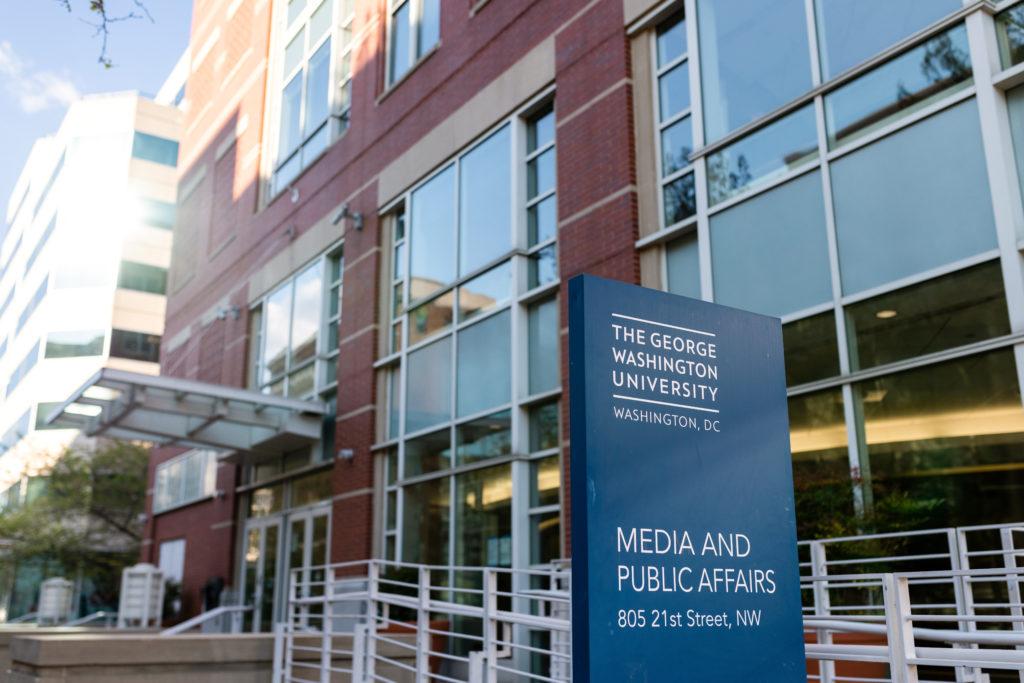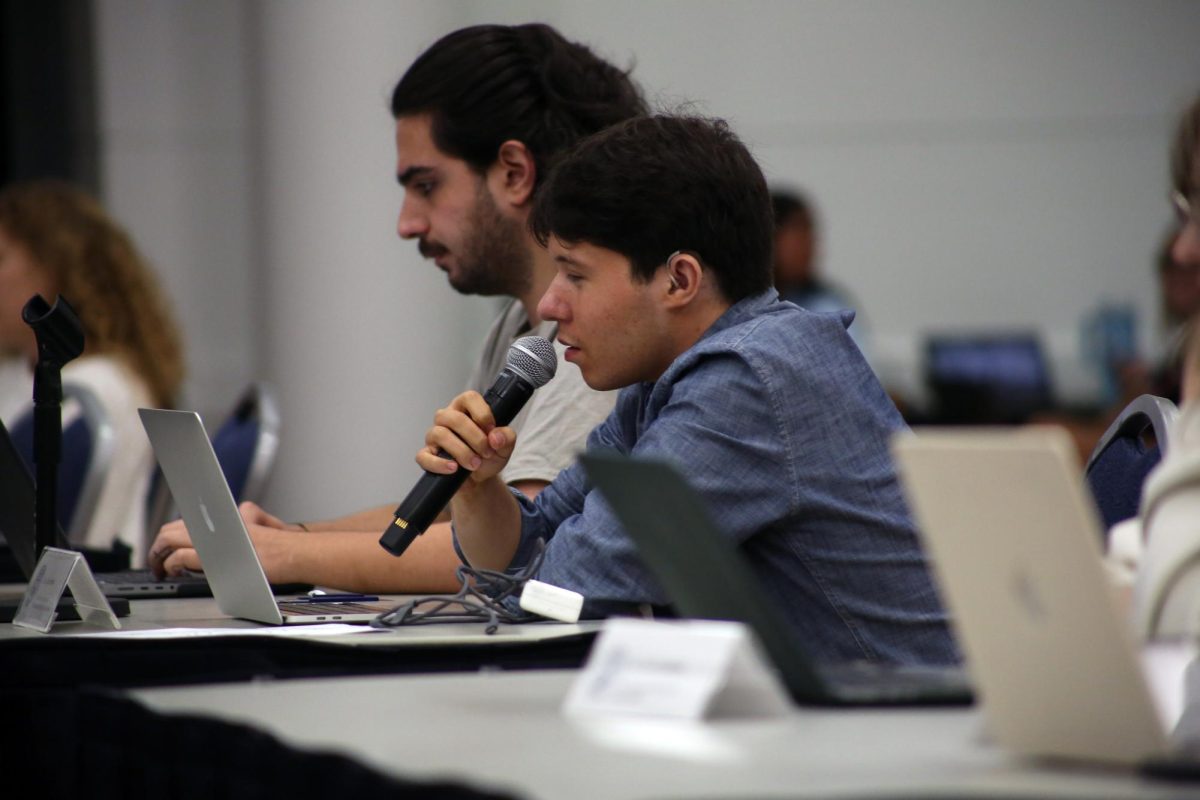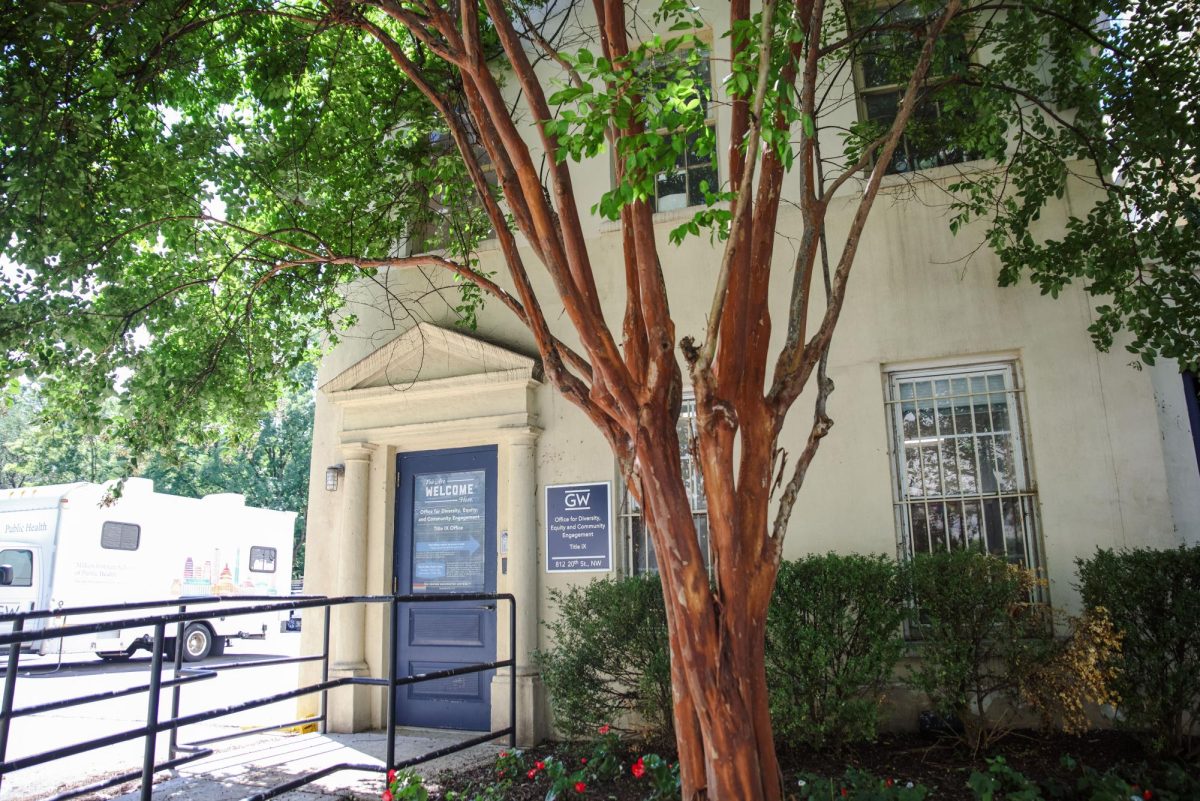Democrat Anthony Williams and Republican Carol Schwartz, the two leading candidates for D.C. mayor, squared off in a debate Wednesday highlighted by student questions on topics ranging from public safety to housing rights.
The debate in the Marvin Center theater, aired live on NewsChannel 8, was interrupted briefly when Statehood Party candidate John Gloster walked onstage and called the debate “a sham.”
Gloster said he was angry because he was not invited to the debate and eventually was removed by NewsChannel 8 staff and a University Police officer. His supporters, who held signs and chanted “Democracy in D.C.,” also were removed after they yells that he should be given a chance to speak.
Bernard Demczuk, assistant vice president for governmental relations, said GW was notified by the Statehood Party before the debate that an attempt would be made to interrupt the forum.
“It was a pleasant disruption, it made for good TV,” Demczuk said.
The remainder of the debate was cordial. But the disturbance meant fewer questions from the panel members during the first part of the debate. The panel was made up of two professional journalists, Student Association President Carrie Potter and a representative from the College Republicans, College Democrats and The GW Hatchet, all of whom sponsored the event. NewsChannel 8 and the Residence Hall Association also were sponsors.
The theater, which was about one-third empty, was filled with mostly students and the candidates’ supporters.
Both candidates agreed on the importance of gaining home rule for the District, maintaining current rent control laws and approving the city’s medicinal marijuana initiative, which will appear on the ballot in November.
The candidates often disagreed when they spoke about hot-button issues such as housing in Foggy Bottom.
Richard Sheehey, a GW graduate running for a spot on the Advisory Neighborhood Commission, said both candidates wanted to reduce the number of students allowed to live in a one-family house from the current limit of six to three.
Williams did not deny that he wants to impose such a reduction.
“I think in a neighborhood setting, we’ve got to balance the needs of our University and its students and the needs of its neighbors,” he said.
Schwartz would not specify an exact figure for the reduction of the limit, but she said she would evaluate the issue upon her election.
“(Universities) represent a very vital and vibrant aspect of our communities,” Schwartz said. “But on the other hand, I also have some sympathy and compassion for those residents who live with the more spirited students.”
Schwartz noted that other universities have a greater percentage of students living on campus, and she said GW should try to provide more on-campus options to its students.
In response to Potter’s question about why GW students should vote for her, Schwartz said, “You’re a resident right now of the District of Columbia, and it is in your best interest to see the city get better.”





